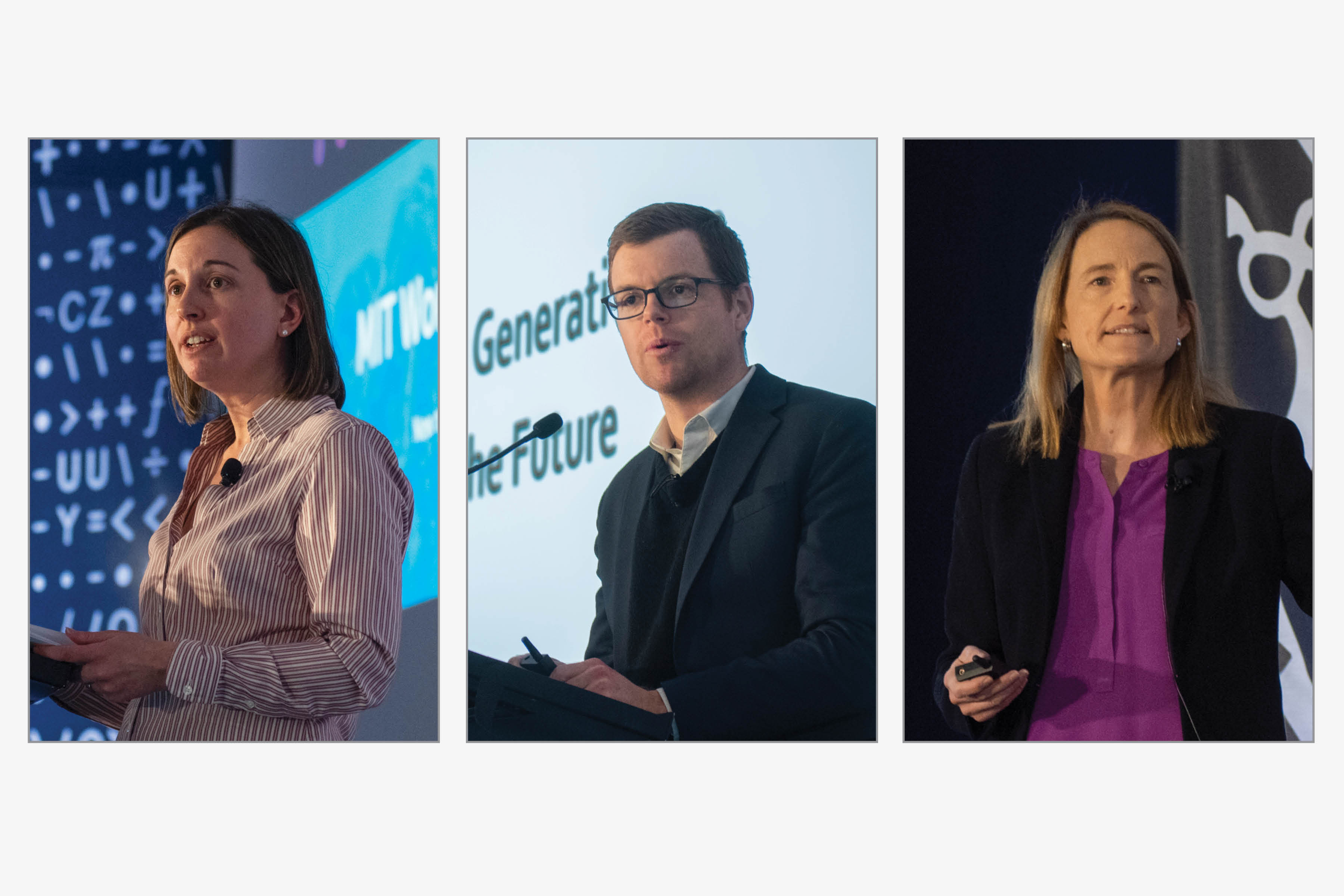
From students crafting essays and engineers writing code to call center operators responding to customers, generative artificial intelligence tools have prompted a wave of experimentation over the past year. At MIT, these experiments have raised questions — some new, some ages old — about how these tools can change the way we live and work.
Can these tools make us better at our jobs, or might they make certain skills obsolete? How can we use these tools for good and minimize potential harm?
The generative AI wave has elicited excitement, anxiety, and plenty of speculation about what’s to come, but no clear answers to these core questions. To discover how generative AI can lead to better jobs, MIT is convening a working group on Generative AI and the Work of the Future. The working group is kicking off with 25 companies and nonprofits alongside MIT faculty and students. The group is gathering original data on how teams are using generative AI tools — and the impact these tools are having on workers.
“The world counts on MIT to turn sophisticated ideas into positive impact for the good of society,” says MIT President Sally Kornbluth. “This working group is focused on doing exactly that: In the face of broad public concern about AI’s potential to eliminate jobs, they are developing practical strategies for how to use generative AI to make existing jobs better and improve people’s lives.”
Organized at MIT’s Industrial Performance Center (IPC) and led by IPC Executive Director Ben Armstrong and MIT professors Julie Shah and Kate Kellogg, the working group recently released the first edition of its monthly newsletter, Generation AI, to share its early findings — and convened its first meeting of AI leads from a diverse cross-section of global companies. The working group also hosted a workshop on Feb. 29 highlighting responsible AI practices, in partnership with MIT’s Industrial Liaison Program.
The MIT team driving this initiative is a multidisciplinary and multi-talented group including Senior Fellow Carey Goldberg and Work of the Future graduate fellows Sabiyyah Ali, Shakked Noy, Prerna Ravi, Azfar Sulaiman, Leandra Tejedor, Felix Wang, and Whitney Zhang.
Google.org is funding the working group’s research through its Community Grants Fund, in connection with its Digital Futures Project, an initiative that aims to bring together a range of voices to promote efforts to understand and address the opportunities and challenges of AI.
“AI has the potential to expand prosperity and transform economies, and it is essential that we work across sectors to fully realize AI’s opportunities and address its challenges,” says Brigitte Hoyer Gosselink, director of Google.org. “Independent research like this is an important part of better understanding how AI is changing the way people and teams do their work, and it will serve as a resource for all us — governments, civil society, and companies — as we adapt to new ways of working.”
Over the next two years, the working group will engage in three activities. First, it will conduct research on early use cases of generative AI at leading companies around the world. The group’s goal is to understand how these new technologies are being used in practice, how organizations are ensuring that the tools are being used responsibly, and how the workforce is adapting. The group is particularly interested in how these technologies are changing the skills and training required to thrive at work. MIT graduate student Work of the Future Fellows are collaborating with companies in the working group to conduct this research, which will be published as a series of case studies beginning in 2024.
Liberty Mutual Insurance joined the working group as part of its long-standing collaborative relationship with MIT researchers. “In a year of extraordinary advancements in AI, there is no doubt that it will continue shaping the future — and the future of work — at a rapid pace,” says Liberty Mutual CIO Adam L’Italien. “We are excited to collaborate with MIT and the working group to harness it to empower our employees, build new capabilities, and do more for our customers.”
Second, the working group will serve as a convener, hosting virtual quarterly meetings for working group members to share progress and challenges with their uses of generative AI tools, as well as to learn from their peers. MIT will also host a series of in-person summits for working group members and the public to share research results and highlight best practices from member companies.
Third, based on the group’s research and feedback from participating organizations, the working group will develop training resources for organizations working to prepare or retrain workers as they integrate generative AI tools into their teams.
IBM has joined the working group as part of its broader investments in retraining and job transformation related to generative AI. “Skills are the currency of today and tomorrow. It is crucial that employees and employers are equally invested in continuous learning and maintaining a growth mindset,” says Nickle Lamoreaux, senior vice president and chief human resources officer at IBM.
The working group has already interviewed or engaged with more than 40 companies. Working group members include Amsted Automotive, Cushman and Wakefield, Cytiva, Emeritus, Fujitsu, GlobalFoundries, Google Inc., IBM, Liberty Mutual, Mass General Brigham, MFS, Michelin, PwC, Randstad, Raytheon, and Xerox Corp.
To learn more about this project or get involved, visit ipc.mit.edu/gen-ai.


